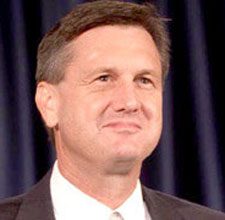 Part Two of the reform to South Carolina’s public-employee pension system is turning out to be a classic case of concentrated benefits and dispersed costs, a phenomenon which favors recipients of government payments at the expense of the average taxpayer. There’s a way we might mitigate some of the harm that’s already been done; but first, let’s review where we are now and how we got there.
Part Two of the reform to South Carolina’s public-employee pension system is turning out to be a classic case of concentrated benefits and dispersed costs, a phenomenon which favors recipients of government payments at the expense of the average taxpayer. There’s a way we might mitigate some of the harm that’s already been done; but first, let’s review where we are now and how we got there.
Last April, the Legislature passed and Gov. Henry McMaster signed a bill that bailed out the pension by increasing taxpayers’ annual contributions by 60 percent. Previously, taxpayers were contributing $1.36 billion each year; as a result of the new law, and after the increase has been phased in over seven years, their annual contribution will be $2.18 billion. That’s an extra $820 million out of taxpayers’ pockets, every year.
Why a seven-year phase-in? Because politicians hope that, if money is taken out of peoples’ pockets in increments instead of all at once, they’ll be less likely to notice it. Politicians are big believers in the parable of the boiling frog.
Here’s some perspective on just how hot the water will get: as a result of the bailout, taxpayers will pay more than double into the pension what public employees do. This two-to-one ratio is way out of whack; as The Heartland Institute notes in its survey of other states’ pensions, “a fair rule of thumb would be that government workers should contribute at least as much toward their retirement as taxpayers.”
That was Part One of pension reform. Part Two, now being discussed, is supposed to avoid future bailouts by requiring future public-employee hires to participate in defined-contribution plans, like 401(k)s, instead of defined-benefits plans which provide for monthly payments for life in retirement based on length of employment and salary. (I emphasize future since existing employees’ or retirees’ defined-benefit plans would not be changed; promises previously made must be kept.)
Historically, defined-benefit plans have been the norm with public-sector pensions. But in recent years, recognizing that they are fiscally unsustainable, 15 states have shifted to defined-contribution plans, where a certain amount of money is set aside each year for each employee’s benefit; in other words, the contribution is defined, but the benefit is not. The private sector, of course, has already long since made this move.
The Reason Foundation explains why this shift is taking place: “Traditional plans are expensive, unpredictable and unsustainable in the long run, putting virtually no risk on the workers or retirees, because taxpayers must make up any funding shortfalls.”
As I argued last April on the floor of the South Carolina Senate, lawmakers should have insisted on a move from defined-benefit plans to defined-contribution for future public-employee hires at the same time they forced taxpayers to bail out the pension. Very powerful political stakeholders – all of the public employees in South Carolina - needed something from the taxpayers. That was the time to demand the necessary and politically difficult plan reforms.
But lawmakers committed the taxpayers’ money without also insisting on what they know is necessary to avoid future bailouts. So now, without that leverage, the committee of lawmakers grappling with Part Two of pension reform are learning all about the “concentrated benefits and dispersed costs” phenomenon, with lobbyists for the various groups of public employees appearing before the committee to demand the continuation of defined-benefit plans. These interests are being heard loud and clear.
But the taxpayers are not. This is not surprising; as F. A. Hayek observed in Road to Serfdom, while “innumerable interests could show that particular measures would confer immediate and obvious benefits on some, the harm they caused on others was much more indirect and difficult to see.”
But irrespective of how difficult, lawmakers have an obligation to see that massive bailouts do in fact harm people, even if such isn’t readily apparent. The taxpayers of South Carolina are already being soaked for an extra $820 million each year, and lawmakers had better realize that their failure to take an obvious step that would avoid future bailouts will not be forgiven.
Tom Davis is the State Senator for Beaufort and Jasper counties.






